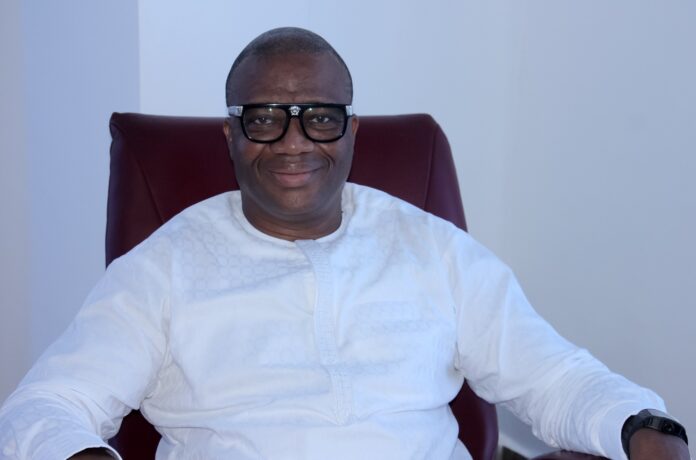Monrovia, Liberia – The political leader of the Movement for Progressive Change (MPC), Mr. Simeon Freeman, has embarked on another advocacy for the reduction of tenure for the President, Senators, and Representatives to four years each.
His proposal, which came during a keynote speech at the commencement ceremony of Faith University over the weekend, has sparked renewed national discourse on governance, accountability, and the urgent need for systemic change in Liberia.
Freeman argued that shortening the term of office for elected officials would not only make them more focused and results-driven but would also curb the misuse of public resources.
“When officials know they have only four years, they won’t waste time,” Freeman asserted. “They’ll understand that there’s no time to steal or mismanage state resources. Instead, they’ll be under pressure to deliver real results, or risk being voted out quickly.”
Currently, Liberian Presidents and Senators serve six-year terms, while Representatives serve for the same duration. Freeman believes this extended time in office often creates complacency and a sense of invincibility among officials, leading to widespread corruption and a lack of urgency in addressing the needs of the people.
“Six years gives them too much time to do the wrong things before they even think about doing right,” he said. “But with four years, officials must hit the ground running. If the electorate makes a mistake in choosing their leaders, that mistake can be corrected sooner rather than later.”
To institutionalize this vision, Freeman proposed that a national referendum be held, allowing Liberians to decide whether they want a more agile and responsive government structure.
“Many countries across the sub-region have already moved to four-year terms. Why should Liberia be any different?” Freeman questioned. “We must align our democratic framework with regional best practices and prioritize the will and welfare of the Liberian people.”
His remarks come amid a growing national appetite for political reform, fueled by widespread concerns over government accountability, slow development, and corruption.
Observers say Freeman’s proposal could become a rallying point for civil society groups and reform-minded politicians who are pushing for a more transparent and efficient governance model.
If passed through referendum, the proposed changes could dramatically shift Liberia’s political landscape—allowing citizens to exercise their democratic voice more frequently and hold elected officials to a higher standard of performance.
As the country braces for deeper debate in the coming months, Simeon Freeman’s call for reform is gaining traction, positioning him as one of the leading voices for a new era of accountable leadership in Liberia.




